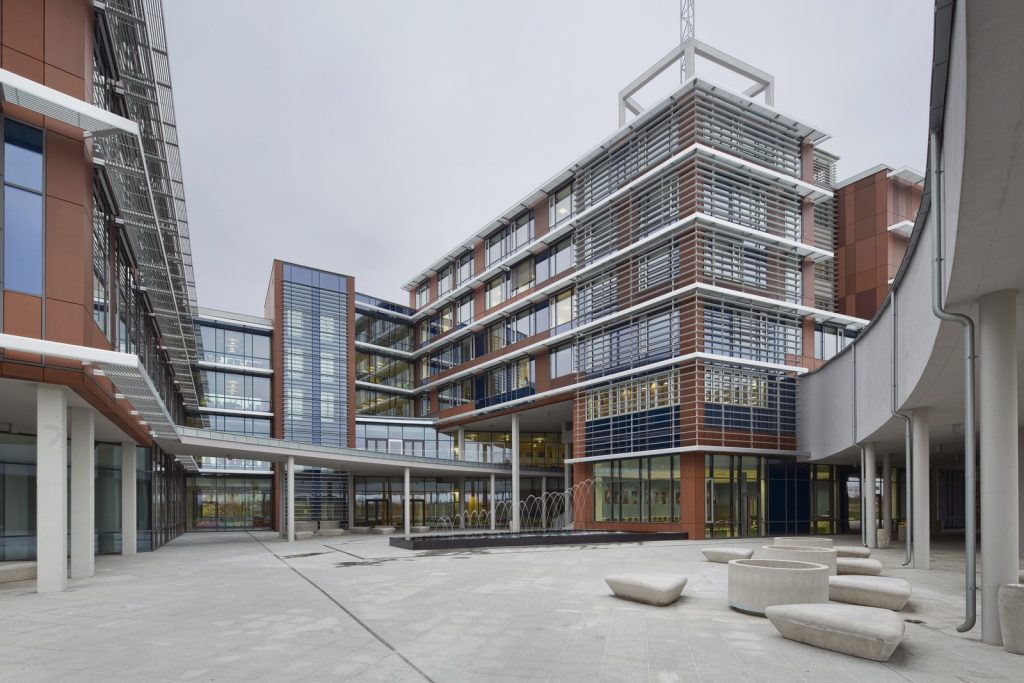It is time to meet our hubs who will be supporting the companies in their technology transfer experiments.
Meet TNO (Netherlands) – developed hub that will be supporting the two other hubs in their cooperation with companies – and DigiTech 4.0 (Bulgaria) and Pilsen DIH (Czech Republic) who will be taking over TNO’s approach and experience.
TNO
Legally established in 1932 and operating as a non-profit organization, TNO works to develop, apply, and transfer knowledge by combining know-how in specific areas with a multidisciplinary approach. With their work TNO experts aim to connect people and knowledge to create innovations that boost the competitive strength of industry and the well-being of society in a sustainable way. We can proudly say that TNO’s SA&P unit has actually been involved in developing the concept of digital innovation hubs.
TNO’s development leaders acknowledge the importance of cooperation and maintenance of strong relationships with other industry, research, and academic partners. These relations are an important stage to translate technologies and the know-how from development to the phases of testing in industrial environments and practical application. Together with imec , TNO operates the Holst Centre – independent research and innovation centre that focuses on wireless sensor technologies and flexible electronics. HOLST centre develops demonstrators and prototypes, and often takes technologies to the point where they are almost ready for market. An example of these technologies is a fitness shirt that can monitor ECG, movements and can be connected with the Bioz system. Another, is an ECG patch – high performance health patch device that uses Holst Centre electrode technology which is also suitable for long term wear through optimized materials and design.

Pilsen DIH
Pilsen digital innovation hub was established in 2018, under the umbrella of University of West Bohemia. This was a natural continuation of the previous activities and projects that founding members have previously participated in for more than 15 years.
The hub is seeking the synergy between the academia, public and corporate sectors to accelerate the development of the region. One of the ways to do so has been through focus on the digitization and digitalization of public services and private sector.
Pilsen DIH sees its further development in the areas of Smart City & Smart Region (Big Data, AI, cybersecurity, e-transport), Smart Ecology (sustainable energy, water and waste management) and Smart Industry (new and alternative materials for industry, environment and healthcare). The hub has already participated in the implementation of several EU projects such as S4AllCities, SKY-EDGE, Bellerophon, Smart Factory Hub and others.
Within the DIHNET project the hub is looking forward to learning from more experienced DIHs in Europe, gaining new best practices and improving the region’s overall ecosystem in digitization.

DigiTech 4.0
DigiTech 4.0 was founded in 2017 in Sofia by ICT Cluster Bulgaria as a lead partner, MOVE.BG and Centre of Excellence from Technical University of Sofia. The consortium’s functionality is enhanced by the 22 supporting organizations – research institutions, business support organizations, research and technology organizations, universities, venture capitalists, technology providers and others. The mission of the hub is to drive digital transformation and smart manufacturing of companies focusing on automotive and mechatronics and ICT sectors in Bulgaria.
The founding partners have carried-out different researches and projects assessing the level of digital technology adoption in Bulgaria. They came to the consensus that Bulgaria is significantly lagging behind other EU countries and the situation needs to be improved. Creating a DIH will help Bulgarian companies to become more competitive by improving their production and business processes through digital technologies.
The DigiTech 4.0 has sectoral specialization – it is focused to digitize automotive, mechatronics and ICT sectors. Between its main technology areas of specialisation are Internet of Things, flexible and wearable electronics, cyber-physical and embedded systems, man/machine interfaces, CPS and robotics for manufacturing.
Participation in the DIHNET project would give DigiTech 4.0 the needed know-how and expertise on organising the administrative, managerial work as well as development of technical support of SMEs and useful services to develop successful working and supportive regional DIH.
Areas of specialisation within DIHNET
Within the DIHNET project TNO, DigiTech 4.0 and Pilsen DIH will be focusing on the areas of ICT – embedding systems innovation, fast open infrastructures, AI, controlled data sharing, IoT, etc. – and flexible electronics such as flexible OLEDs, hybrid electronics and thin film transistors. Companies can use these technologies to develop new solutions such as wearable, stretchable electronics in clothing, improving their manufacturing and other processes, e.g., setting up data sharing between individual companies and groups of organizations or building digital twins of equipment.
Also, the hubs will be exploring the options to prolong their collaboration within the DIHNET network and attract other DIHs, manufacturers, public sector companies and investors. Interregional collaboration among DIHs and establishment of SME collaborations between regions will increase market opportunities on both sides and boost the digitalization speed.

Visit our Open Call page to find about conditions and opportunities for your company within the DIHNET project.
